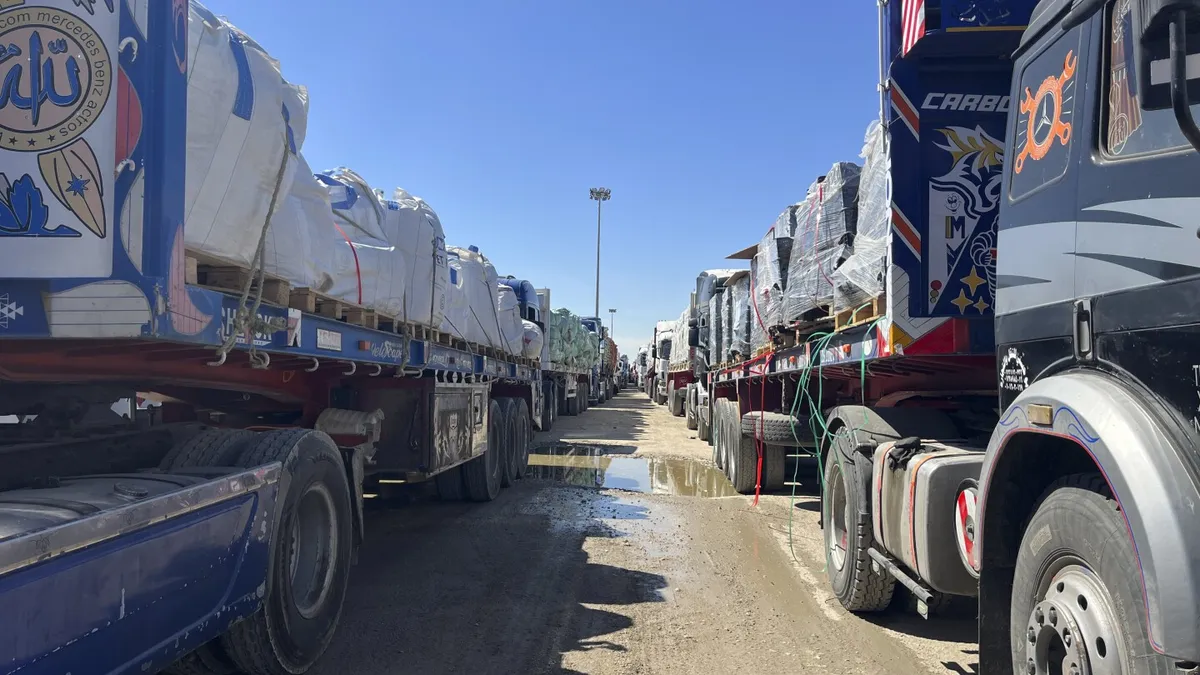
In a significant escalation of the ongoing conflict, Israel has cut off the entry of all food and goods into Gaza, reminiscent of the initial siege imposed during the early days of its war with Hamas. This drastic move has drawn sharp criticism from the United Nations and various humanitarian organizations, which describe it as a violation of international law. Saudi Arabia’s foreign ministry condemned the action as “a tool of extortion,” while Oxfam labeled it “a reckless act of collective punishment.” Key mediator Egypt has accused Israel of employing “starvation as a weapon,” highlighting the dire situation facing Gaza's over 2 million residents.
Throughout the conflict, hunger has loomed large as a pressing issue for the people of Gaza. Aid experts had previously warned of a looming famine, raising alarms about the potential loss of progress achieved during the six-week ceasefire. Israel's recent decision appears aimed at pressuring the Hamas militant group to agree to a proposal from Prime Minister Benjamin Netanyahu's government, which seeks to extend the first phase of the ceasefire rather than embark on negotiations for the more complex second phase.
The negotiations for the second phase, which would involve Hamas releasing the remaining living hostages in exchange for Israel's withdrawal from Gaza, were initially scheduled to begin a month prior. However, with the first phase of the ceasefire ending early Sunday, Israel announced its support for a new proposal to extend this phase through the Jewish holiday of Passover in mid-April. The proposal is reportedly a U.S. initiative spearheaded by Mideast envoy Steve Witkoff.
Despite these developments, Israel has warned that it may resume military actions if it deems negotiations ineffective. This uncertainty surrounding the fragile truce has raised concerns among aid organizations, which have criticized the ongoing restrictions on humanitarian access to Gaza. The Biden administration had previously urged Israel to allow increased aid into the region, even threatening to limit military support if necessary.
Since the ceasefire's first phase took effect on January 19, an average of 600 trucks of aid entered Gaza daily, providing much-needed relief. However, Hamas has stated that less than 50% of the agreed-upon number of trucks carrying essential supplies were permitted entry. The recent announcement of the aid cutoff came shortly after Muslims in Gaza celebrated the first breaking of the fast during Ramadan, leading to a surge of panic buying in markets. Prices for basic goods reportedly “tripled immediately,” according to Mahmoud Shalabi, the deputy director of programs for Medical Aid for Palestinians.
The immediate backlash against Israel's aid cutoff has included strong legal critiques. The U.N. humanitarian chief, Tom Fletcher, emphasized that international humanitarian law mandates access for the delivery of vital lifesaving aid. In response to Israel's actions, five non-governmental organizations have petitioned Israel’s Supreme Court, seeking an interim order to prevent the state from obstructing aid to Gaza, arguing that such actions contravene Israel's obligations under international law and amount to war crimes.
Furthermore, last year, the International Criminal Court indicated there was substantial reason to believe Israel had employed “starvation as a method of warfare,” leading to an arrest warrant for Netanyahu. This allegation is also central to South Africa's ongoing case at the International Court of Justice, which accuses Israel of genocide. Kenneth Roth, the former head of Human Rights Watch, stated that as an occupying power, Israel has an “absolute duty” to facilitate humanitarian aid under the Geneva Conventions. He characterized Israel’s decision as a return to a “war-crime starvation strategy” that had previously prompted the ICC warrant.